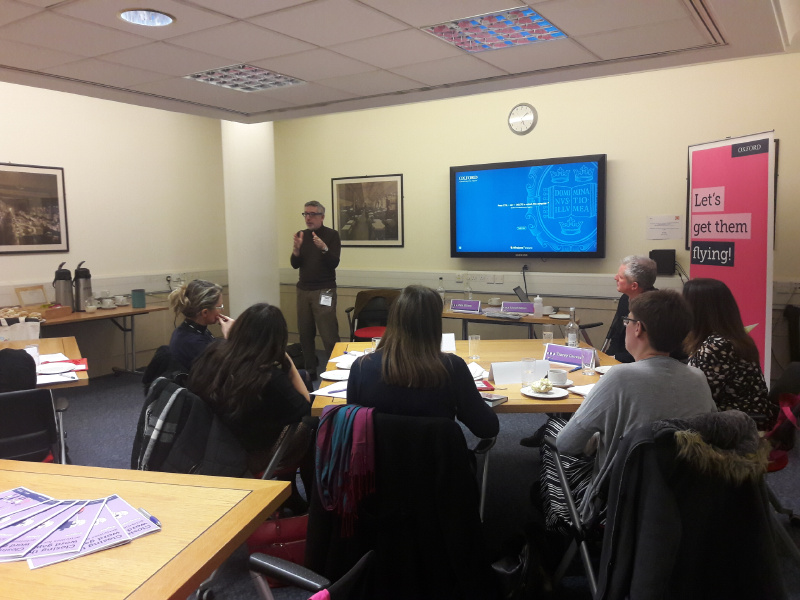We recently held a small event in our Oxford offices to talk to primary and secondary school teachers about vocabulary and the Word Gap in their school. Lots of interesting, practical ideas were shared and discussed and we have summarised some of them here:
- Give key vocabulary at the start of each lesson. Encourage students to try to use these words as much as possible during the lesson or in their written work. You could set up a debate, for example, and say that they have to use at least two of the words in their discussion.
- Don’t be scared of repetition – it works in the MFL classroom so we shouldn’t be shy when applying it to other classrooms as well. Encourage students to say a word three times before you give them the explanation, this gives them more ownership of the word.
- Build a culture of talking about books in the classroom. Ask all teachers to talk about their favourite books, and display them in their classrooms. Often they can be more interested in what their favourite PE teacher is reading!
- Try to use examples when explaining the meaning of words which are personal to the students, for example, when learning “feud” in Romeo and Juliet, you can ask students to think of how the word might be relevant to them. Picture cards as well as definition can help with retention and understanding.
- Give your students the strategies they need to find the meaning of vocabulary themselves. If a tricky word comes up that they don’t know the meaning of, look up the word together, modelling being a Word Detective! When they’re reading, encourage them to try and work out what the word means from the context.
- Transition words and connectives are great to help students build confidence when writing longer pieces of work. Try giving students a scaffold for their writing, with connectives already in place – when this is taken away later then they’re more likely to remember the vocabulary that they’ve already been using.
- Encourage students to write for real purposes e.g. writing letters to their MP. Building tasks which have a real audience helps students see the necessity of writing, and helps them to feel they can invoke change.
- Encourage reading of all types of text – for example graphic novels or abridged versions can sometimes be a great way to help students access trickier texts.
- Elevate teacher language, and foster a culture of always asking if you are not sure what something means.
